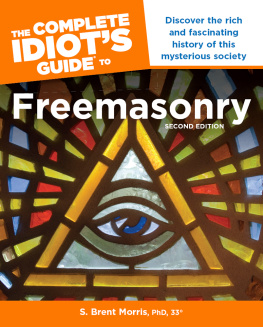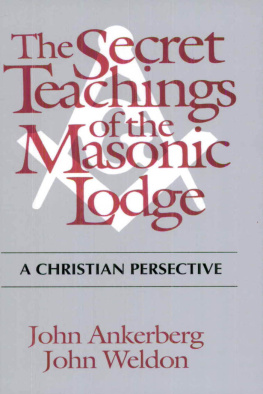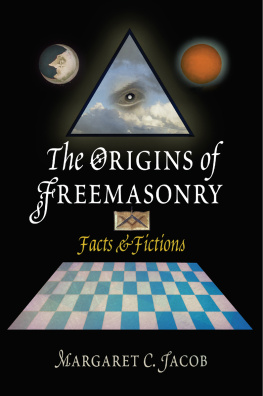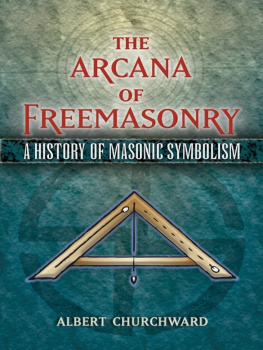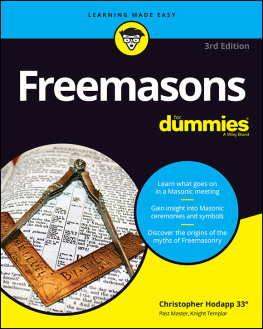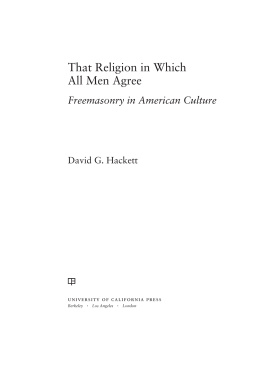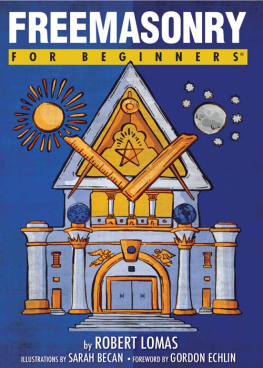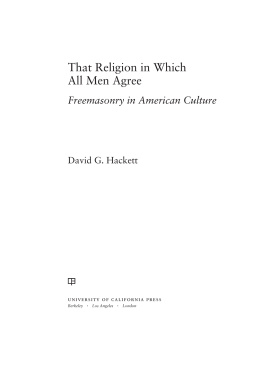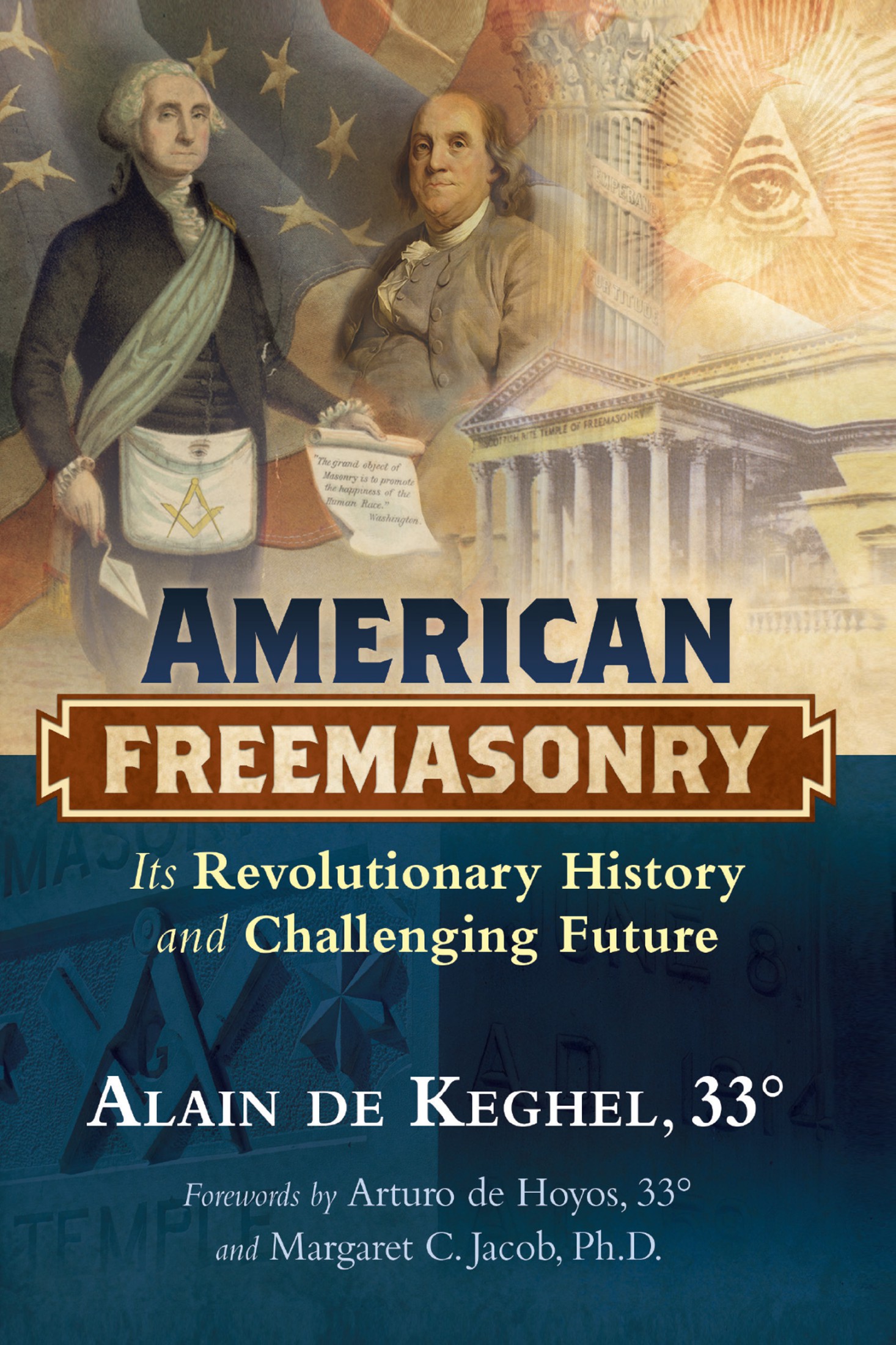
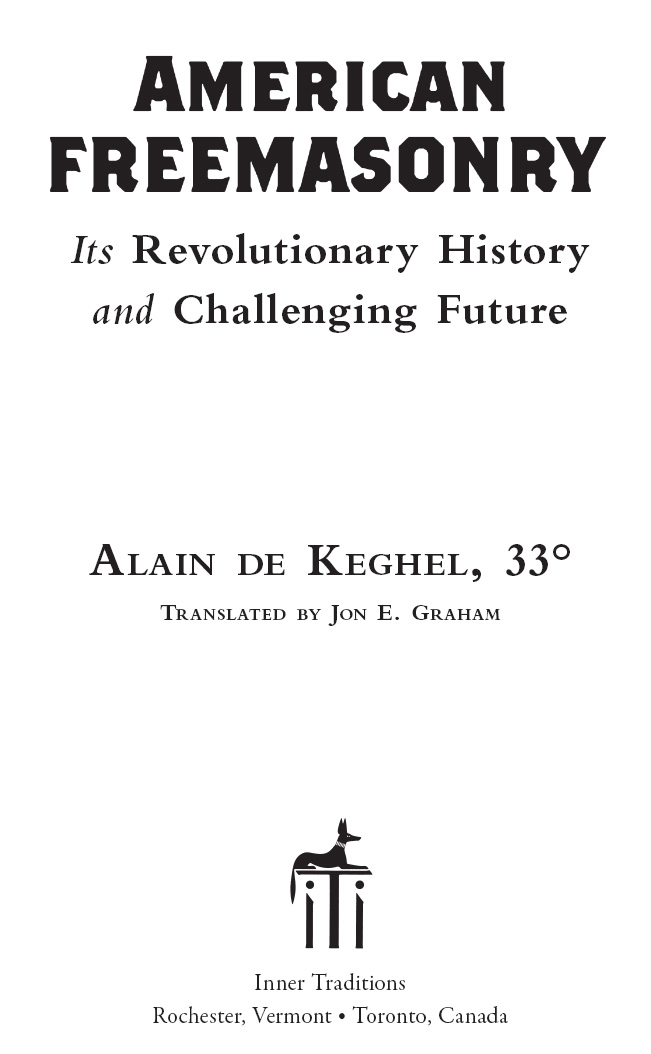
AMERICAN FREEMASONRY

American Freemasonry is everything one should expect from an author with Alain de Keghels impressive resume. The author is a committed and accomplished Freemason, scholar, historian, and career diplomat. The book reflects his years of travel, study, and extensive Masonic activity around the world. It should be read by every American Freemason who is willing to learn and think beyond what he is exposed to in everyday Masonic study. Mr. de Keghel presents an extensive history of our Craft on both sides of the ocean and philosophical divides, which is well worth the effort to read and ponder. It may be a very long time, if ever, that we may reconcile the differences outlined in the book. This should not prevent us but rather encourage us to better understand how our brothers from other Masonic traditions practice their Craft and how they perceive us. Reading this book should further promote interaction with all our brothers within the bounds of our obligations. Interaction is always a good thing, especially with a group with whom, despite our differences, we have so very much in common. I highly recommend this book to every inquiring Freemason.
MARTIN L. KANTER, PAST MASTER AND PAST DISTRICT DEPUTY GRAND MASTER OF THE GRAND LODGE OF THE STATE OF NEW YORK
Foreword

By Margaret C. Jacob, Ph.D.
Perhaps it takes a Frenchman to explain American Freemasonry. Certainly Alain de Keghel knows the subject well, both its history and its contemporary situation. It helps that he has lived in the United States and has studied its general history. This book accepts the challenges posed by American Freemasonry, by its piety about God and country and its refusal to entertain foreign influences. The British origins are clearly important, and the association of the lodges with the American Revolution gives a respectability that few other forms of civil society can claim.
Yet even that association could not save the lodges from a virulent anti-Masonry faction that emerged in the 1820s as a result of the Morgan Affair. The account de Keghel gives of it is balanced and fair and rightly links the notion of there having been a Masonic conspiracy to a mind-set that reappeared after 1945 and is generally labeled as McCarthyism, named after the vociferous, Communist-hunting U.S. senator Joseph McCarthy.
This book is also about Freemasonry in Canada and contains a very helpful section on French American Masonic relations, which have often been tumultuous. Members on either side of the Atlantic will recognize many elements in these ruptures, among them the issue of Gods existence and the presence of many women in the French lodges. Perhaps hardest of all to understand is the split in American Freemasonry between lodges for blacks and those for whites. Anyone who has ever addressed lodges in the American South will have witnessed that sad reality. One of the earliest members of a Paris lodge is described in the letters as a Negro trumpeter in the Kings Guard. French Freemasonry has a great deal to be proud about in its history. As Freemasonry has reached the three-hundredth anniversary of the founding of the Grand Lodge of London in 1717, the American lodges have found a charitable and wise interpreter.
MARGARET C. JACOB, PH.D.
MARGARET C. JACOB, PH.D., is a professor of history at the University of California, Los Angeles. One of the worlds foremost Masonic scholars, she is considered a pioneer in the field of the history of civil society, with emphasis on Masonic history. Her work in the early development of Freemasonry documents connections between early European Freemasons and the Craft as we know it today. She is the author of The Radical Enlightenment: Pantheists, Freemasons, and Republicans; Living the Enlightenment: Freemasonry and Politics in Eighteenth-Century Europe; and The Origins of Freemasonry: Facts and Fictions.
Foreword

By Arturo de Hoyos, 33
The history of Freemasonry in general and American Freemasonry in particular receives less attention than the practice of the rites, on which authors more often focus their studies. This should be seen as most likely responding to the primary interests of their readers. They are seeking first and foremost access to knowledge about the Masonic initiatory path. The rarest works are those seeking to shed light on and decipher the developments of the Masonic order from its beginnings, with an eye to their interaction with contemporary challenges. Both of these approaches are of equal importance to the grand archivist and grand historian of the Southern Jurisdiction. The articles published in the magazine Heredom attest to this reality.
Relatively few in number in comparison to the members of the lodges are those Freemasons who belong to the research societies, but far rarer are the French Freemasons who have been consistently involved over a long period of years with studies of this nature in the United States. The authentic knowledge that can be found in the depths of the archives is capable of providing a solid foundation for positions. The library of the Southern Jurisdiction of the Ancient and Accepted Scottish Rite, housed in the House of the Temple in Washington, D.C., figures at the very forefront of the worlds collections of Masonic documents. It contains a wealth of information and documentation that begs to be used. It was at this already mythic site that the noted Masonic writer Albert Pike labored at the end of the nineteenth century. He has left us an invaluable legacy on which researchers are still tirelessly working. But there is also the legacy of Albert Mackey and many other major figures of our Masonic history.
Alain de Keghel has been a lifetime member of the Scottish Rite Research Society of the Southern Jurisdiction since the 1990s. He did not content himself with the title alone but instead used this membership to cultivate sustained, friendly, fraternal, and studious relations with the large family of American researchers. People will remember that it was he who, in 1999, carried out research with Pierre Mollier, the director of the Library and Archives of the Grand Orient of France, and myself on behalf of the French Masonic magazine Renaissance traditionnelle by consulting documents of the highest importance at the site of our library of the Southern Jurisdiction. The results were seen in the April 2000 issue, no. 122, of this magazine. The article focused on the beginnings of the Ancient and Accepted Scottish Rite in France. It was structured around the discovery of an exceptional document: the first book of the architecture of the original French Supreme Council, from 1804 to 1812.
Nor was it any accident that Alain de Keghel took part in the commemoration festivities of the bicentennial of the Ancient and Accepted Scottish Rite in Charleston, South Carolina, in September 2001, as his involvement far surpassed any particularisms. We are familiar with his Masonic eclecticism, his participation in the American society of the Philalethes, as well as in that of the research lodge Quatuor Coronati no. 8 (Bayreuth, Germany), and in the famous first International Conference on the History of Freemasonry, held in Edinburgh in 2007. These conferences have been highly successful, and one was even held in Alexandria, Virginia. The 2015 conference was held at the Bibliothque Nationale in Paris.
Next page

